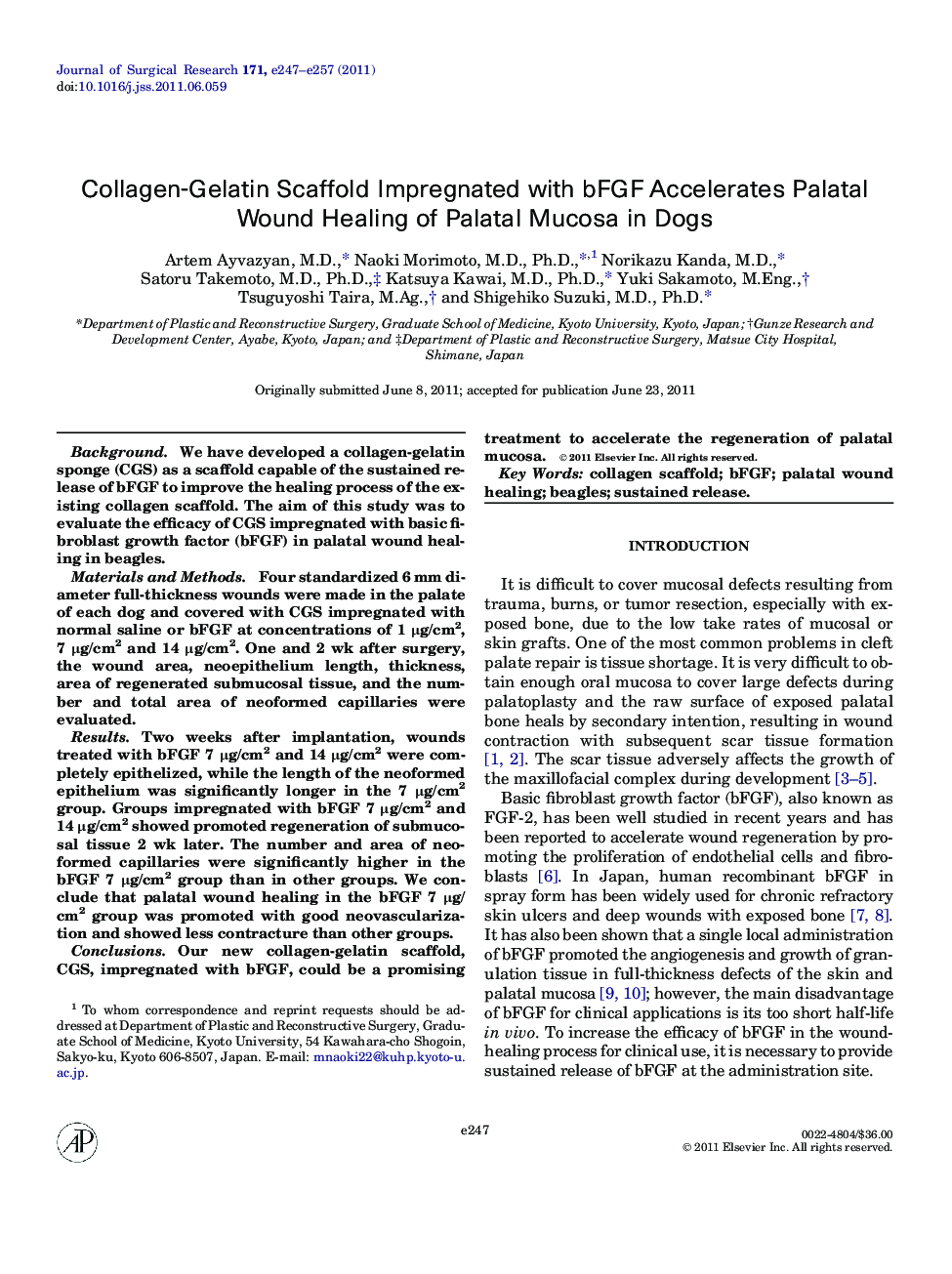| Article ID | Journal | Published Year | Pages | File Type |
|---|---|---|---|---|
| 4301901 | Journal of Surgical Research | 2011 | 11 Pages |
BackgroundWe have developed a collagen-gelatin sponge (CGS) as a scaffold capable of the sustained release of bFGF to improve the healing process of the existing collagen scaffold. The aim of this study was to evaluate the efficacy of CGS impregnated with basic fibroblast growth factor (bFGF) in palatal wound healing in beagles.Materials and MethodsFour standardized 6 mm diameter full-thickness wounds were made in the palate of each dog and covered with CGS impregnated with normal saline or bFGF at concentrations of 1 μg/cm2, 7 μg/cm2 and 14 μg/cm2. One and 2 wk after surgery, the wound area, neoepithelium length, thickness, area of regenerated submucosal tissue, and the number and total area of neoformed capillaries were evaluated.ResultsTwo weeks after implantation, wounds treated with bFGF 7 μg/cm2 and 14 μg/cm2 were completely epithelized, while the length of the neoformed epithelium was significantly longer in the 7 μg/cm2 group. Groups impregnated with bFGF 7 μg/cm2 and 14 μg/cm2 showed promoted regeneration of submucosal tissue 2 wk later. The number and area of neoformed capillaries were significantly higher in the bFGF 7 μg/cm2 group than in other groups. We conclude that palatal wound healing in the bFGF 7 μg/cm2 group was promoted with good neovascularization and showed less contracture than other groups.ConclusionsOur new collagen-gelatin scaffold, CGS, impregnated with bFGF, could be a promising treatment to accelerate the regeneration of palatal mucosa.
